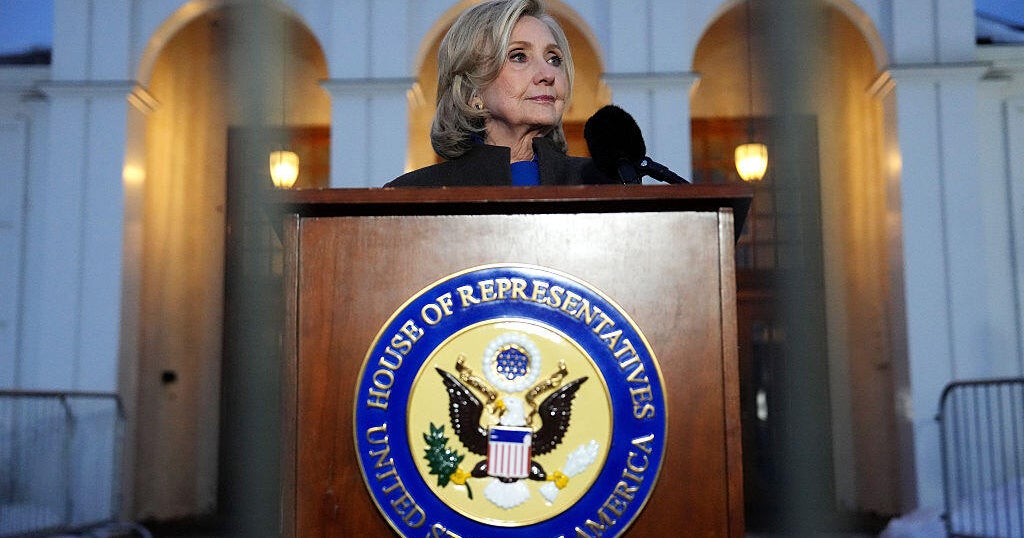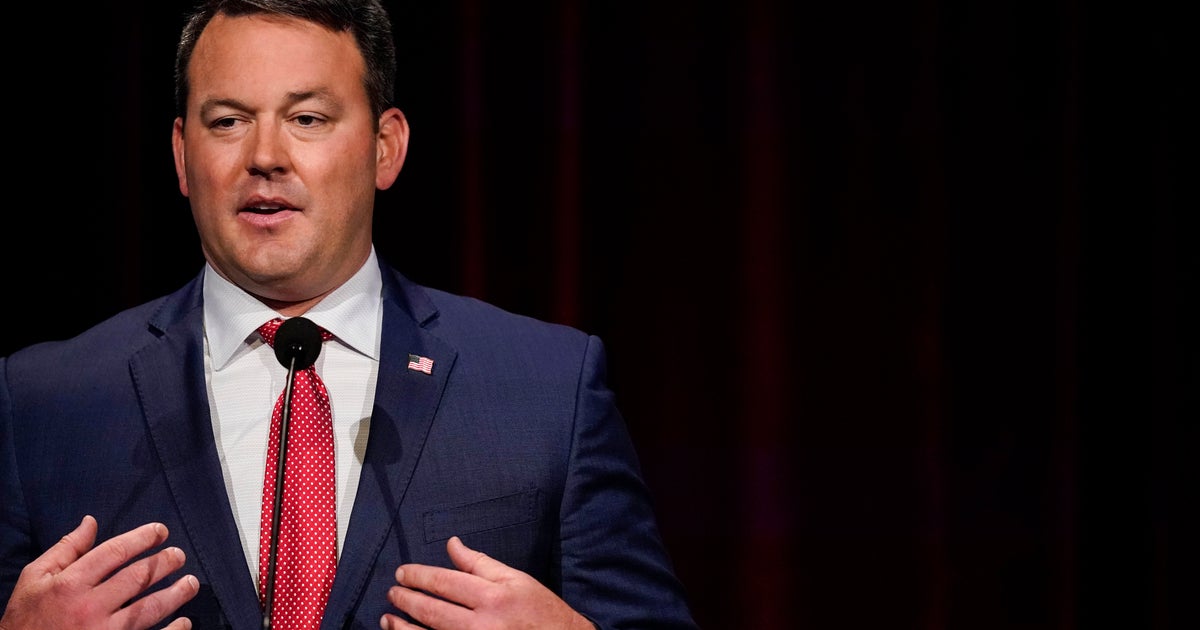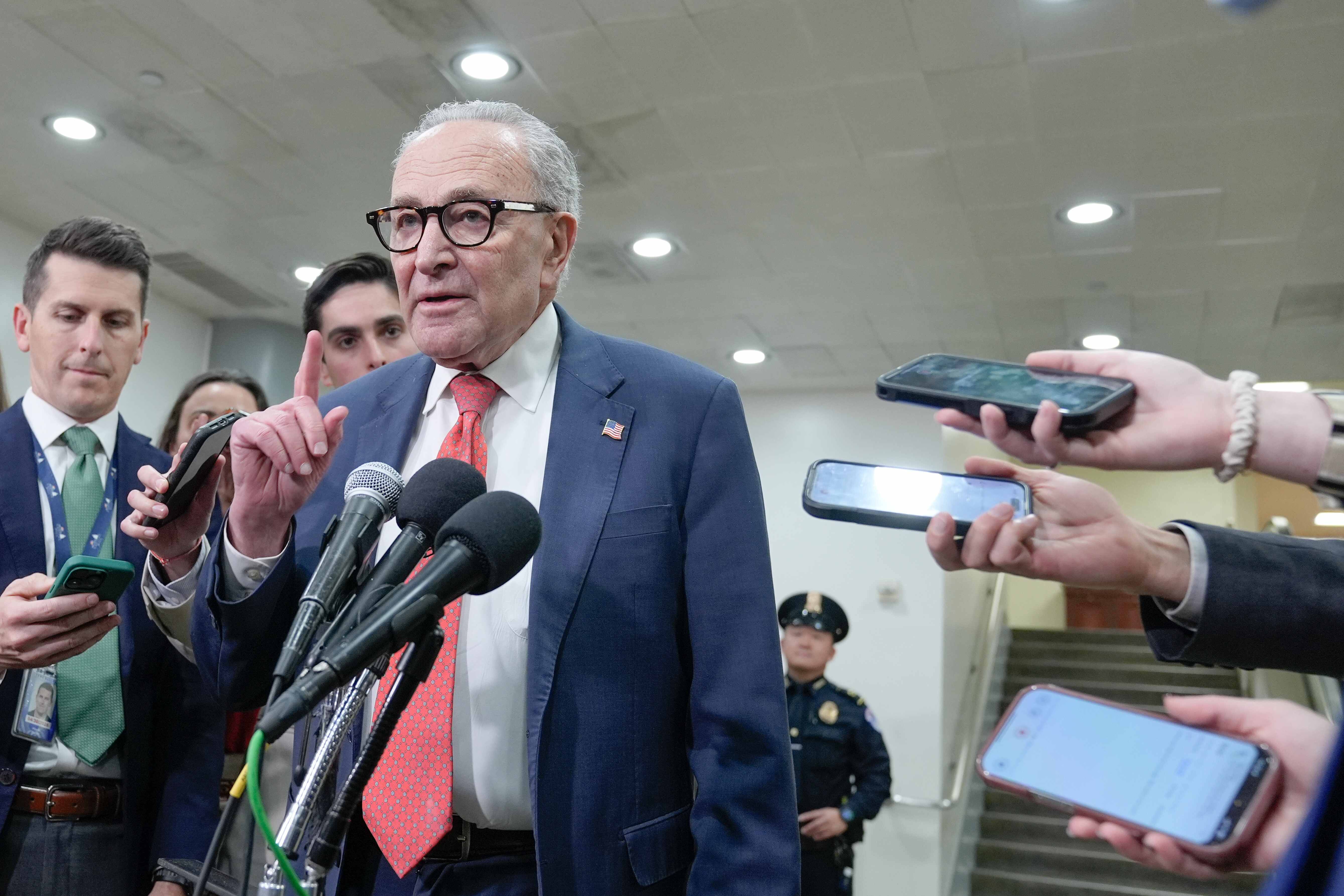Senate advances $1.7 trillion spending bill to head off government shutdown
Washington — The Senate on Tuesday voted to begin debate on a $1.7 trillion spending package hours after it was unveiled by congressional leaders, as lawmakers race to pass the plan before Friday and avert a partial government shutdown just before the Christmas holiday.
The Senate's 70 to 25 vote moves the legislation closer to final passage, and House members were notified they will meet Thursday and remain in session until the spending package is completed. Support from at least 10 GOP senators is needed for it to clear the Senate before the plan is taken up by the House, and the early procedural vote was an indication of the level of support for the package. Twenty-one Republicans voted to begin debate on the spending measure.
The measure, known as an omnibus bill, includes roughly $772.5 billion for domestic priorities and $858 billion in defense funding, as well as nearly $45 billion in emergency aid to Ukraine and roughly $40 billion in disaster relief for communities recovering from hurricanes, wildfires, drought and other natural disasters. The package funds federal agencies through the end of the fiscal year on Sept. 30, and includes reforms to the Electoral Count Act and a ban on TikTok on federal agencies' devices.
Senate leaders praised the deal reached by Democratic and Republican appropriations leaders in both chambers, the last brokered by Democratic Sen. Patrick Leahy of Vermont and Republican Sen. Richard Shelby of Alabama before they retire.
"The American people need us to act quickly to avert the looming danger of a government shutdown," Senate Majority Leader Chuck Schumer said in remarks on the Senate floor. "Nobody wants a shutdown. Nobody benefits from a shutdown, and so I hope nobody here will stand in the way from funding the government ASAP."
Senate Minority Leader Mitch McConnell, who imposed a deadline of Dec. 22 for the sweeping plan to clear the Senate, acknowledged passing an omnibus spending package days before Christmas is "not the right way to run" the process, but called for its approval.
"This is an impressive outcome for the Republican negotiators, and more importantly, it is the outcome that our country actually needs to keep helping Ukraine and our other friends, to keep out-innovating and outcompeting Russia and China and to keep our brave men and women in uniform equipped with the best training, tools, and technologies the world has ever seen," he said on the Senate floor.
But complicating efforts to clear the spending plan, in addition to facing a tight timeline, is the opposition from a group of House and Senate Republicans who have been pushing for any spending talks to be postponed to January, when the party takes control of the House and can demand spending cuts.
"This monstrous spending bill comes to 4,155 pages. We deserve proper consideration and the chance to read, debate and amend — not a backroom deal. Opposing this isn't radical: running our government like this is what's radical," Sen. Mike Lee, a Republican from Utah, tweeted.
House Minority Leader Kevin McCarthy, who is working to secure enough votes from the Republican caucus to be elected speaker in January, threatened that bills from GOP senators who vote in favor of the omnibus package will be "dead on arrival in the House if this nearly $2T monstrosity is allowed to move forward over our objections and the will of the American people."
Adding to the unease — and bolstering calls for swift action by lawmakers — is a winter storm that is expected to disrupt holiday travel.
"The sooner we pass the omnibus, the better," Schumer said.
The White House said the legislation includes investments that advance a range of national priorities and advocated its passage.
"This bipartisan legislation demonstrates once more that both parties can come together to deliver for the American people and make progress on critical priorities for the nation," it said in a statement. "The bill advances cutting-edge research on cancer and other diseases, makes communities safer, delivers for America's veterans, supports the Ukrainian people, helps communities recovering from devastating natural disasters, invests in child care and education, and more."
Text of the legislation was released just before 2 a.m. Tuesday and includes a bevy of lawmakers' projects, stuffed into what is likely to be the last major bill of the current Congress.
The government is already operating under a week-long budget extension signed by President Biden on Friday, and McConnell has warned that if the fiscal year 2023 spending measure fails to gain bipartisan support this week, he would seek another short-term patch into next year, guaranteeing that the new Republican majority in the House would get to shape the package.
Leahy argued against that approach in releasing the bill, saying, "The choice is clear. We can either do our jobs and fund the government, or we can abandon our responsibilities without a real path forward."
Lawmakers are nearing completion of the 2023 spending package nearly three months late. It was supposed to be finished by last Oct. 1, when the government's fiscal year began.
The last time Congress enacted all its spending bills by then was in 1996, when the Senate finished its work on Sept. 30, the very last day of the budget year. Then-President Bill Clinton signed it that same day.
The bill's unveiling was delayed by haggling over language related to the location of the FBI's future headquarters. Maryland lawmakers have argued that ensuring predominantly Black communities get their fair share of federal investments should be more thoroughly considered as part of the selection process. They're advocating for building the headquarters at one of two sites in Maryland's Prince George's County.
In September, when the General Services Administration issued a site selection plan based on five criteria, the most heavily weighted, at 35%, was proximity to the FBI training academy in Quantico, Virginia. Advancing equity was weighted at 15%.
Democratic Sen. Chris Van Hollen of Maryland said at a recent forum that a Biden executive order early in his administration emphasized that the issue of racial equity is not just an issue for any one department, but it has to be the business of the whole government.
"I would submit that the GSA and the FBI clearly haven't gotten the message, given the low weight they've given to this factor," Van Hollen said.
A Senate Democratic aide familiar with the negotiations said Schumer worked to incorporate language in the spending bill ensuring the GSA administrator conduct "separate and detailed consultations" with lawmakers representing the Maryland and Virginia sites to get their perspectives.



